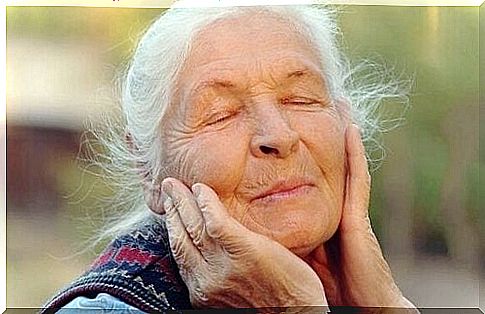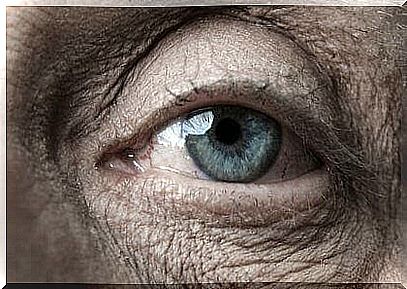Regulating The Emotions Of The Elderly: A Key To Well-being

The proper regulation of the emotions of the elderly is an exercise in health and well-being. Interestingly, several studies have found that beyond physical and cognitive decline, older people are, on average, much more sensitive to positive emotions. They enhance social relationships. They also have more control over their emotional worlds.
The Swiss philosopher Henri-Frédéric Amiel said that knowing how to age is the masterpiece of reason, and one of the most difficult parts of the great art of living. It is undoubtedly not easy to reach old age with the same optimism as the young man who has the future ahead of him. Seniors know, however, that the key to happiness is not waiting. True well-being is looking at the present moment with humility, simplicity and positivity.
The regulation of the emotions of the elderly, the latest findings
The study of the regulation of the emotions of the elderly is a relatively new field. However, taking into account the increase in life expectancy, it is clear that this sector of the population will have an important weight in our society in the coming decades. Thus, an essential challenge before us is to reach these advanced ages in the best possible state. We are not just talking about physical well-being. We refer above all to the emotional level.
The field of aging research is advancing by leaps and bounds. Out of curiosity, Dr. Derek Isaacowitzel, an expert in the field of emotions at Yale University, developed technology to study the attentional biases of older people. These are glasses that record the stimuli that attract the attention of their patients to later analyze their emotional reaction.
It has been shown that in 90% of cases, the older adult is more interested in faces that show positive emotions. This preference, this constant search for a smiling face, a warm gaze or a kind word helps them to self-regulate their own emotions. Experts believe it’s as if the brain acts as a cognitive mediator when it focuses attention on these stimuli in order to reduce negative emotions and imbue itself with positivity.

Emotions don’t deteriorate with the aging process
Getting older first of all generates a change in motivation. Long-term goals are limited. Seniors are investing in a better quality of life for the present. The regulation of the emotions of the elderly therefore has a very precise goal, a well-defined motivation. It is about optimizing emotional experiences to appreciate balance, inner calm, relationships with friends and family.
- All of this constitutes what we call the old age well-being paradox. In other words, older people have, on average, greater life satisfaction than younger people. This is so because of the abilities they have to regulate their emotions. This mechanism does not present as marked deterioration as that of cognitive processes.
- We know, for example, that aging mainly affects the frontal lobes. This is where our capacity for attention, problem solving, planning, etc. resides. The emotions e t our ability to interact with our environment through the eyes, smiles and respond positively to the condition, however, is something that remains intact. Something that resists diseases as serious and sad as Alzheimer’s disease.

Old age makes us more selective
We rarely filter our reality when we are young. We let things happen, we want to experiment, to feel with open arms. However, we start to place filters and even fences as we get older. The passage to the third age gives us a new vision. The fences are abandoned and the filters are more selective. We then seek to prioritize and focus attention on everything that can provide us with well-being and not problems.
So, as psychologist and researcher Heiner Ellgring of the Max Planck Institute in Munich explains in his book “ The Reasons and Emotions of Old Age”, older people focus on three aspects:
- Enjoying relationships with family and friends
- Invest in their health
- Take care of and benefit from their resources (house, garden, field, animals, etc.)
A positive life for the elderly is based on taking these aspects into account. Subjective happiness lies in these three factors. The social, relational and emotional factor being the most important. Therefore, aging with health is about being selective and having clear priorities. The need to experience positive emotions on a daily basis is undoubtedly a priority here.









